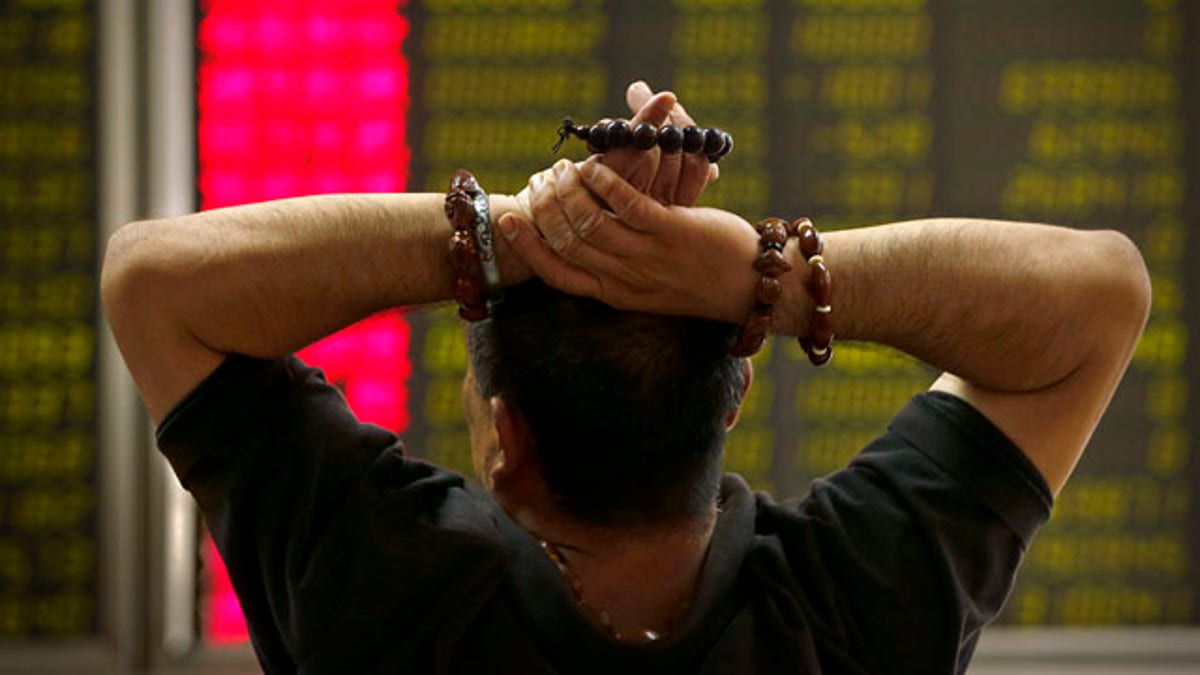
Aug. 24, 2015: A Chinese investor monitors stock prices at a brokerage house in Beijing. Stocks tumbled across Asia on Monday as investors shaken by the sell-off last week on Wall Street unloaded shares in practically every sector. (AP Photo/Mark Schiefelbein)
China’s stock markets suffered their sharpest daily fall since the global financial crisis on Monday, with the government withholding support at a time when investors world-wide have been rattled by volatile selling in China and a slowdown in its economy.
The Shanghai Composite Index’s loss of 8.5 percent by Monday’s close was its largest daily percentage decline since February 2007. Today’s performance reminded investors of an 8.5 percent drop on July 27, when worries mounted that authorities were pulling back on measures to prop up the market.
Monday’s performance erased Shanghai’s gains for the year, reverberated across Asia and weighed on global markets at an inopportune time for China. Next week, it will host world leaders for a memorial parade meant to show off its military power and increasing clout on the global stage. In addition, Chinese President Xi Jinping is slated to visit the U.S. next month. But a global selloff was already gathering pace by late afternoon in Asia, with European stocks and U.S. stock futures falling sharply.
At the heart of the selloff is the concern that the once-high-flying Chinese economy may be slowing down dramatically, which has triggered steep losses in global stock markets, commodities and emerging markets. China’s surprise move to devalue its yuan two weeks ago—which could make its exports more competitive—and a string of weak data signal the economy may be feebler than expected, despite a campaign to rev up growth including interest rate cuts and measures to boost lending.
The Shanghai Composite closed Monday at 3209.91, bringing its losses since its mid-June peak to nearly 38 percent. At that point, the index had doubled in value over the preceding 12 months. The smaller Shenzhen market fell 7.7 percent to 1882.46, putting it down 40 percent from its June peak. Both indexes breached a previous bottom in early July, after the government had stepped in with massive intervention measures to stem selling.
